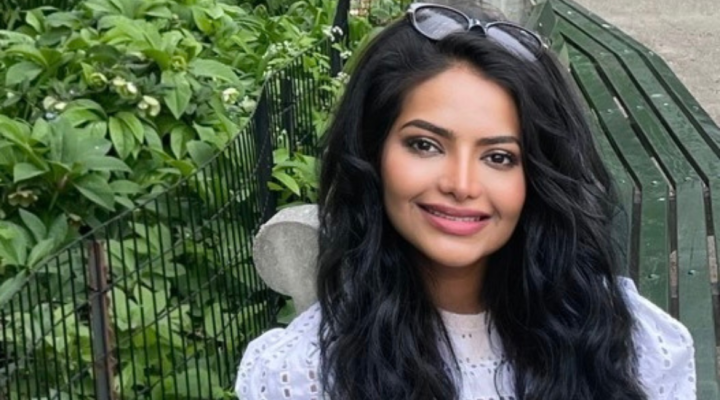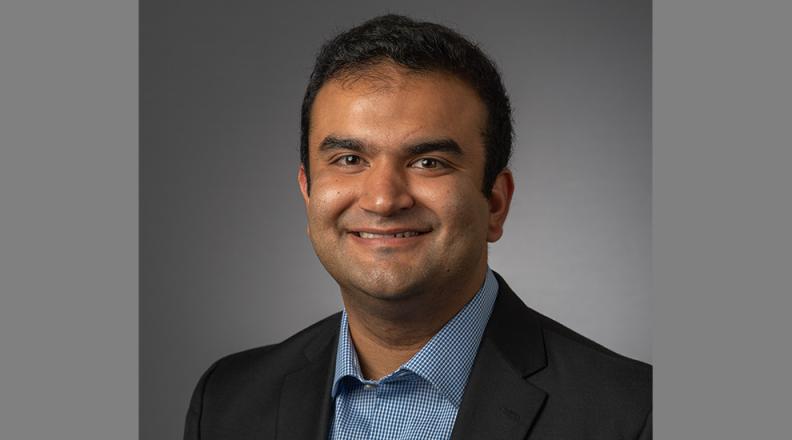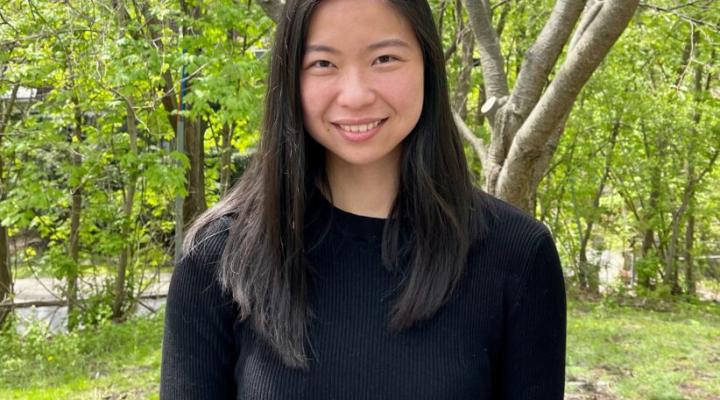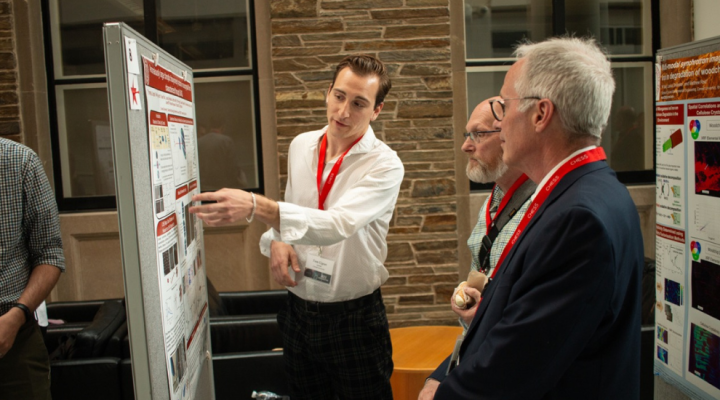A conversation with Mokshin Suri
Mokshin Suri is a materials science and engineering doctoral student from Dallas, Texas. He earned his bachelor’s degree in chemical engineering at the University of Texas at Austin and now studies nano-bio hybrid photosynthetic systems under the guidance of Tobias Hanrath from the Smith School of Chemical and Biomolecular Engineering at Cornell.
What is your area of research and why is it important?
My research explores artificial photosynthetic systems involving nanomaterial light absorbers and biological catalysts. Tiny semiconductor crystals, also known as quantum dots (QDs), are excellent at absorbing light and generating free electrons. Similarly, biological systems, like microbes, are excellent at performing complex chemical reactions. We can combine the “best of both worlds” to create nano-bio hybrid systems that can use light to power complex biological reactions such as CO2 conversion to bioplastics, nitrogen fixation to ammonia, and much more. The key to advancing nano-bio systems is understanding how light-activated charges transfer from the artificial QDs to biological cells or proteins. My work has focused on understanding this interfacial charge transfer so that we can better develop nano-bio systems for future applications.
What are the broader implications of this research?
Using light and biology to power complex reactions has compelling prospects in future of manufacturing, especially because there is a growing demand to increase sustainable practices in industry. So far, the field has largely focused on nano-bio systems that use light to enhance biological conversion on CO2 into valuable fuels. While this is a great approach for current times, I think there is scope to advance nano-bio hybrids towards manufacturing specialty products that are notoriously difficult or expensive to produce via traditional means.
What hobbies or activities do you enjoy in your spare time?
I enjoy playing soccer, drinking coffee, and spending time outdoors. My favorite coffee spot in Ithaca is Ooy’s on the Ithaca Commons.
Why did you choose Cornell?
I chose Cornell because of the opportunity to conduct interdisciplinary research and because I had never lived in a place where I could experience all four seasons.
What is next for you?
After Cornell, I plan to pursue a career in industry where I can continue to work on complex scientific challenges that address our goals of building a more sustainable world for the future.
Do you have any advice for future or current graduate students?
I recommend embracing the opportunities to learn from people around you. I’ve found that Cornell has a very collaborative research culture and learning from people outside of your day-to-day interactions can lead to exciting work.





